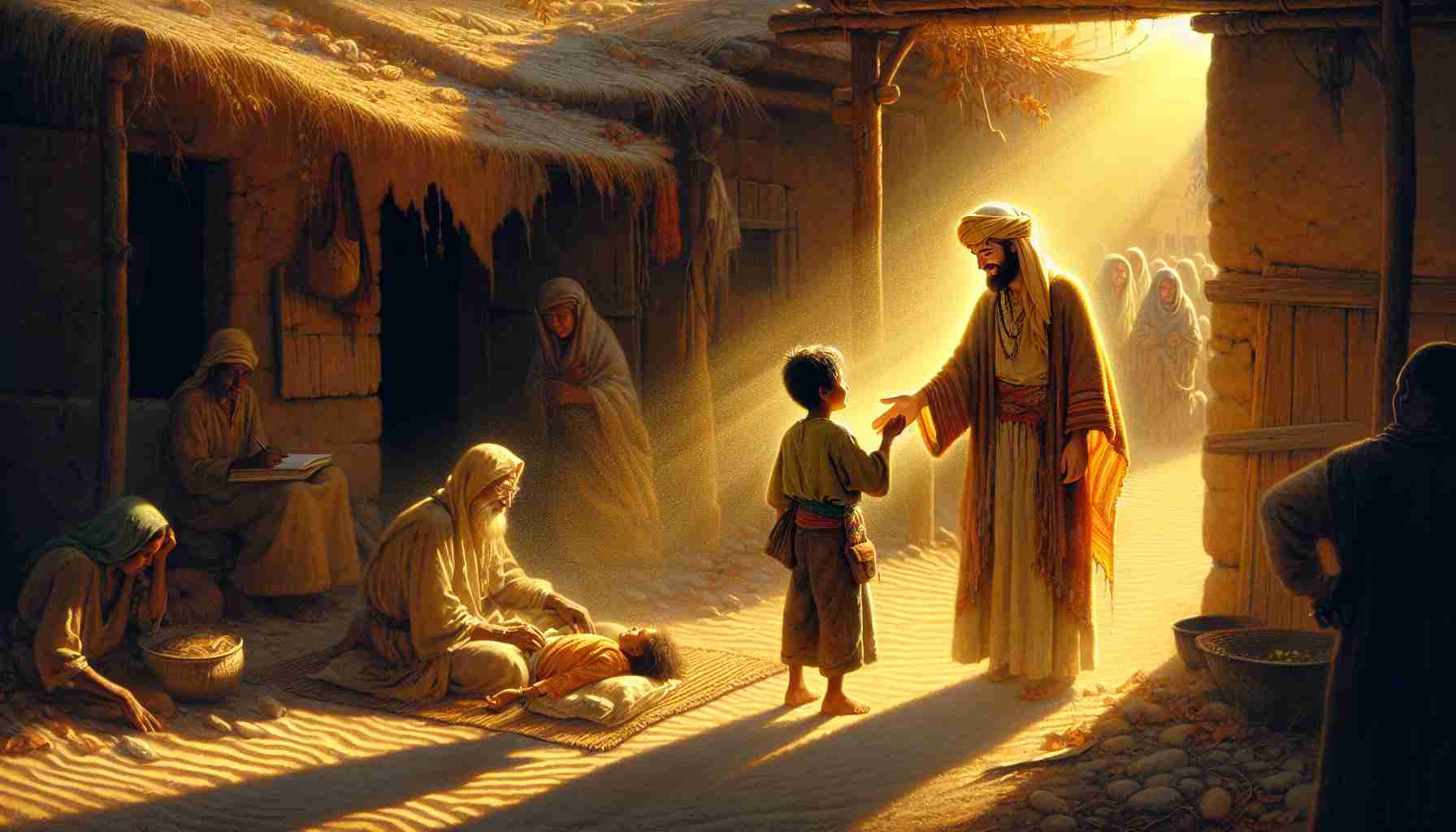

I remembered the day with a heaviness in my chest. The road into the town of Bayt Shan was dry and cracked, just like the hearts of many holding onto false hopes. My name isn’t written in any surah, but I was a boy living in those lands, in the time of the Prophet Al-Yasa—known to others as Elisha, the student of Prophet Ilyas (Elijah), peace be upon them both.
I was the son of a potter, always covered in dust. My father had once seen Prophet Ilyas heal a sick man with nothing but a cry to Allah. So when Prophet Al-Yasa came to our town, many remembered that story and wondered: would this prophet also carry such barakah—blessing—from Allah?
But not everyone believed.
My mother had fallen ill just days before. Her skin had turned pale, her voice weakened. My father tried everything—herbs, charcoal mixed in vinegar, even old remedies passed down by the elders—but nothing helped. "Ask Al-Yasa," I whispered one night. My father remained silent. Perhaps he feared disappointment more than her illness.
Al-Yasa came quietly, walking with calm steps, his eyes deep with knowing, his heart heavy with mercy. He stayed no more than a few days, teaching, praying, reminding the people to abandon their idols and turn to the one God—Allah, who has no partner.
When I finally got close to him, it was not in the way I expected.
I was gathering water from the well when men near the edge of town came running, shouting that a boy had collapsed and was not breathing. I dropped my jug and ran. When I reached the crowd, I saw him—just a few years older than me—his body still, his mother wailing beside him.
Al-Yasa stood nearby, whispering words I could barely hear, his hands raised gently. No one interrupted him. We all watched.
Then the boy’s chest rose.
I gasped. Not just because of the miracle—though that would have been enough—but because I saw something change in the boy’s mother's face. It was like a shutter had been lifted from her heart. She wept louder, but now there was joy in her tears.
That night, my father went to Al-Yasa, carrying my mother in his arms.
I couldn’t sleep. I watched the stars and whispered to Allah, trying to mimic the calm voice I had heard that day. "O Allah, the Most Merciful, the Most Powerful, heal my mother if it is good for her."
By morning, she was better. I heard her voice calling my name—the way she used to, full of strength and warmth. My heart pounded with a joy I didn't know how to hold.
Some say miracles were only for prophets. But I believe the true miracle is what happens to our hearts when we finally trust in Allah. That was the legacy of Al-Yasa—not just to heal bodies, but to awaken souls.
Inspired by Surah Sad (38:48) and classical tafsir on Prophet Al-Yasa (Elisha), peace be upon him.
I remembered the day with a heaviness in my chest. The road into the town of Bayt Shan was dry and cracked, just like the hearts of many holding onto false hopes. My name isn’t written in any surah, but I was a boy living in those lands, in the time of the Prophet Al-Yasa—known to others as Elisha, the student of Prophet Ilyas (Elijah), peace be upon them both.
I was the son of a potter, always covered in dust. My father had once seen Prophet Ilyas heal a sick man with nothing but a cry to Allah. So when Prophet Al-Yasa came to our town, many remembered that story and wondered: would this prophet also carry such barakah—blessing—from Allah?
But not everyone believed.
My mother had fallen ill just days before. Her skin had turned pale, her voice weakened. My father tried everything—herbs, charcoal mixed in vinegar, even old remedies passed down by the elders—but nothing helped. "Ask Al-Yasa," I whispered one night. My father remained silent. Perhaps he feared disappointment more than her illness.
Al-Yasa came quietly, walking with calm steps, his eyes deep with knowing, his heart heavy with mercy. He stayed no more than a few days, teaching, praying, reminding the people to abandon their idols and turn to the one God—Allah, who has no partner.
When I finally got close to him, it was not in the way I expected.
I was gathering water from the well when men near the edge of town came running, shouting that a boy had collapsed and was not breathing. I dropped my jug and ran. When I reached the crowd, I saw him—just a few years older than me—his body still, his mother wailing beside him.
Al-Yasa stood nearby, whispering words I could barely hear, his hands raised gently. No one interrupted him. We all watched.
Then the boy’s chest rose.
I gasped. Not just because of the miracle—though that would have been enough—but because I saw something change in the boy’s mother's face. It was like a shutter had been lifted from her heart. She wept louder, but now there was joy in her tears.
That night, my father went to Al-Yasa, carrying my mother in his arms.
I couldn’t sleep. I watched the stars and whispered to Allah, trying to mimic the calm voice I had heard that day. "O Allah, the Most Merciful, the Most Powerful, heal my mother if it is good for her."
By morning, she was better. I heard her voice calling my name—the way she used to, full of strength and warmth. My heart pounded with a joy I didn't know how to hold.
Some say miracles were only for prophets. But I believe the true miracle is what happens to our hearts when we finally trust in Allah. That was the legacy of Al-Yasa—not just to heal bodies, but to awaken souls.
Inspired by Surah Sad (38:48) and classical tafsir on Prophet Al-Yasa (Elisha), peace be upon him.